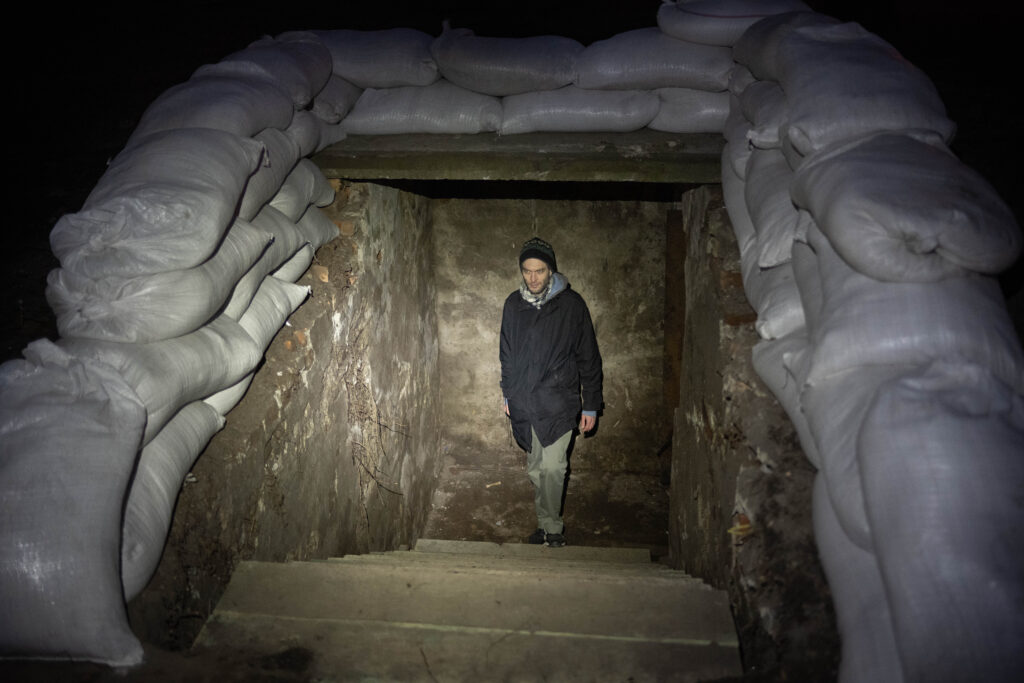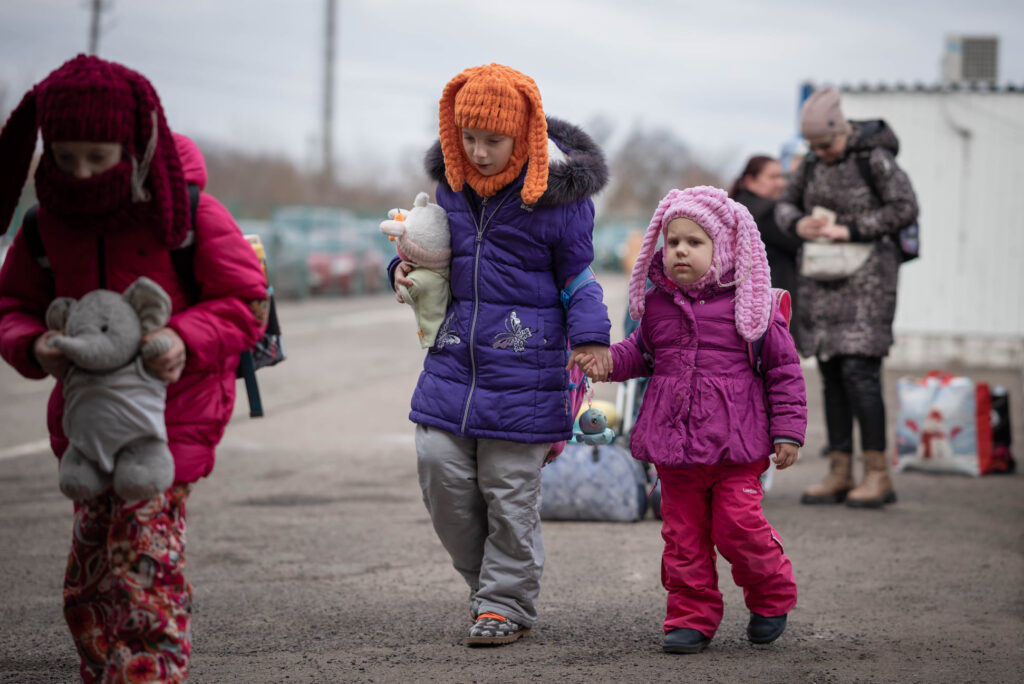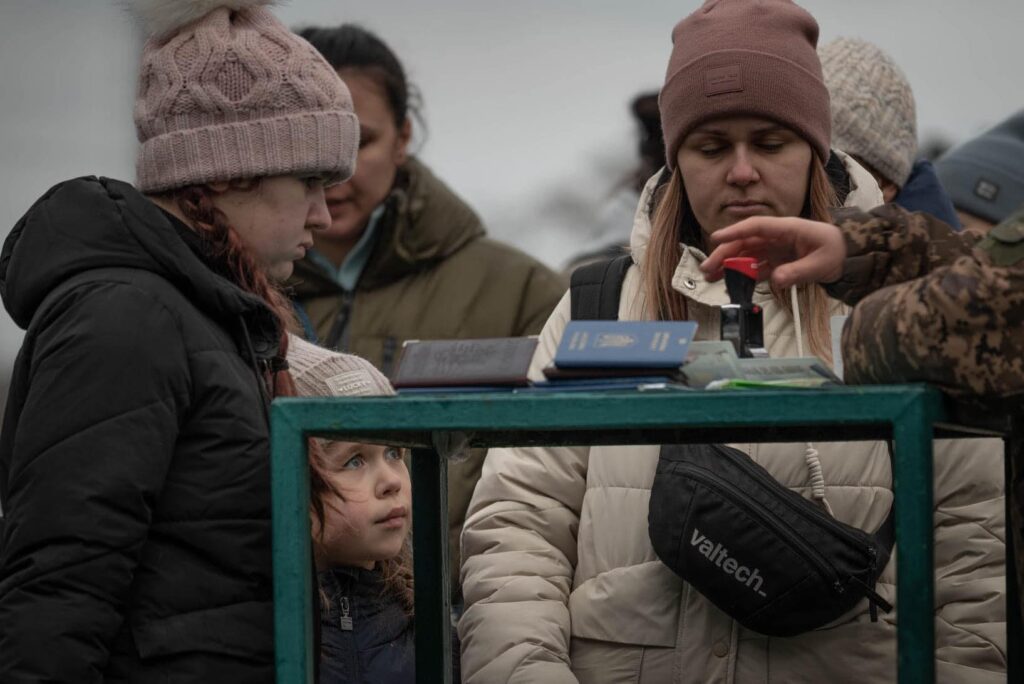
Putin apela a un viejo fantasma –el nazismo- para obtener el apoyo de su pueblo y justificar una invasión injustificable. Al hacerlo, construye una narrativa potencialmente poderosa que, sin embargo, con el devenir de los días, se cae en pedazos y se vuelve contra él.
El autor intelectual del asesinato de la periodista rusa Anna Politkovskaya y del envenenamiento del expresidente ucraniano Viktor Yushchenko, lanza su guerra fratricida con la finalidad de “desnazificar” y “desmilitarizar” Ucrania y “detener el genocidio” de rusos étnicos que habitan en el éste de Ucrania. Pero, ¿qué tan ciertos son esos argumentos?
Con la caída del Muro de Berlín, el politólogo Francis Fukuyama, consideraba que el ciclo político de la humanidad se estaba cerrando y que éste conduciría no a una convergencia entre capitalismo y socialismo, sino a un triunfo del liberalismo económico y político. En otras palabras, liberal estadounidense auguraba el triunfo de occidente, de la idea occidental y de la democracia como sistema político.
Según los teóricos liberales, el predominio global de la democracia como un conjunto de valores que a su vez conlleva un sistema de pesos y contrapesos conduciría irremediablemente a una mayor observancia del derecho internacional y, por ende, a un periodo prolongado de paz. Para Fukuyama, el fin de la guerra fría simbolizaba no solo el paso de un periodo a otro, sino el fin mismo de la historia, es decir, la cúspide de la evolución ideológica del hombre y la universalización de la democracia liberal occidental como la forma última de gobierno a la que podían aspirar todos los seres humanos.
Sin embargo, Putin nos demostró una y otra vez que la realpolitik importa y que, por ende, no podemos pasar por alto los intereses estratégicos de los Estados. La invasión rusa de Georgia en 2008, la anexión de Crimea en 2014 -a manos de soldados rusos encubiertos- y, recientemente, la cobarde invasión de Moscú a Ucrania, dejan en claro que los valores democráticos no son el puerto último de todos los pueblos. Por añadidura, si la democracia no es moneda de uso corriente, la relativa paz de la posguerra fría tampoco podría ser perpetua.
Los teóricos liberales postulan que la democracia, la interdependencia económica y la pertenencia a las organizaciones internacionales bastarían para acercar posiciones y resolver los conflictos que pudieran surgir entre los países. En ese sentido, el avance de la globalización, así como la creciente interconexión e interdependencia económica que conlleva, servirían de freno a las ambiciones de los autócratas. Nada más alejado de la realidad. A pesar de las millonarias y variadas sanciones impuestas a la economía rusa, al círculo más íntimo de Putin y a los grandes oligarcas de ese país, la guerra continúa sin visos de cesar.
¿Qué factores explican entonces la decisión rusa de invadir Ucrania? ¿Por qué una economía tan interconectada con el mundo como lo es la rusa – a diferencia por ejemplo de la de Corea del Norte- se arriesgó a recibir un cúmulo de sanciones sin precedentes?

¿Cuáles son los intereses estratégicos de Rusia?
Claramente la clase política rusa debió haber ponderado que la ganancia sería mayor, quizá no en términos económicos, pero sí en términos políticos y de seguridad.
Posterior a la anexión rusa de Crimea en 2014, uno de los mayores exponentes del neorrealismo ofensivo, John Mearsheimer, postulaba en Foreign Affairs que tanto Estados Unidos como sus aliados de la Unión Europea compartían la mayor parte de la responsabilidad de dicha crisis. Al igual que la mayoría de las voces en 2022, el profesor de la Universidad de Chicago no dudaba en señalar la expansión de la OTAN como causante de la reacción rusa. Según Mearsheimer, Rusia percibió que sus intereses estratégicos se encontraban amenazados y temía, entre otras, que la OTAN estableciera una base naval en el Mar Negro, lugar donde Rusia mantiene una importante flota desde 1790, año en que Catalina La Grande le arrebató la península de Crimea al Imperio Otomano.
Si la OTAN comenzó a expandirse en 1999 al incorporar en su seno a Chequia, Hungría y Polonia, e incluso se atrevió a incorporar en 2004 a las exrepúblicas soviéticas de Estonia y Letonia que colindan con la Federación Rusa, ¿por qué Rusia tardó tantos años en agredir a Ucrania? La mayoría de los expertos lo adjudica a la debilidad rusa de esa época.
Adicionalmente, la frontera ucraniana con Rusia es significativamente mayor (1576 kms) que la que tienen Estonia (294 kms) y Letonia (217 kms); la distancia con Moscú es menor y poco accidentada y la importancia estratégica de Ucrania es incomparable (paso de gaseoductos rusos hacia Europa, base de operaciones de la flota rusa del Mar Negro, tierra rica en minerales, alta producción de granos, maquinaria pesada, armamento, generación de energía nuclear etc.).

En términos culturales, Rusia reclama su origen histórico y su legado cultural en la Rus de Kyiv (Kievska Rus), federación de tribus eslavas que se remonta al siglo IX y que tenía a Kyiv como su capital. Aunque Ucrania, Rusia y Bielorrusia tienen su origen en dicha federación, es la actual capital ucraniana –y no Moscú, Minsk o San Petersburgo- la heredera indiscutible de ese legado. De ahí, que las afirmaciones de Putin de que “Ucrania no existe” o que “no es un país vecino, sino parte de nuestra historia, nuestra cultura y espacio espiritual”, son a la inversa. Rusia es parte de la historia de Ucrania. Ese fue el caso por más de trescientos años (desde finales del siglo IX hasta mediados del siglo XIII), por lo que las reivindicaciones históricas de Putin carecen de sustento y más bien podrían ser empleadas por un dirigente nacionalista ucraniano.
Ahora bien, que Rusia fuera débil en los noventa no significa que los funcionarios rusos no hubieran manifestado su desacuerdo una y otra vez con las intenciones de occidente, y creían – ¿ilusamente? – que sus contrapartes habían entendido sus preocupaciones en materia de seguridad. En ese sentido, Putin no fue el primero en advertirle a occidente qué ocurriría en caso de que la OTAN prosiguiera su expansión hacia sus fronteras.
Ya en 1995, durante los bombardeos de la OTAN en contra de los serbobosnios en Bosnia Herzegovina, el entonces presidente de la Federación Rusa, Boris Yeltsin señalaba:
“este el primer signo de lo que podría ocurrir cuando la OTAN llega justo a las fronteras de la Federación Rusa…La flama de la guerra puede irrumpir a lo largo de toda Europa”.
Boris Yeltsin, 1995
Esa no fue la primera llamada de atención, ni la más importante, pero sí nos muestra que los Estados tienen intereses estratégicos que trascienden a sus líderes.
Debido a que no hay una autoridad mundial a quien acudir –principio de la anarquía-, los neorrealistas arguyen que los Estados deben defenderse por sí solos –principio de autoayuda-. De no hacerlo, corren el riesgo de ser exterminados. A fin de evitarlo, los Estados necesitan fortalecer sus capacidades militares y eliminar las amenazas a su seguridad.
Eso es precisamente lo que Putin ha hecho hasta la fecha. De ahí, que no nos deba sorprender la invasión de Georgia en 2008 (unos meses después de que la OTAN consideró abiertamente la posibilidad de admitir a Georgia y Ucrania), la invasión desde dentro y posterior anexión de Crimea en 2014, o incluso la actual guerra fratricida contra el gobierno de Zelenskyy.
Lo que sí debiera sorprendernos –con todo y la impresionante batería de sanciones económicas contra Rusia- es la pasividad de Estados Unidos y la Unión Europea en relación con las flagrantes violaciones por parte de Rusia a la soberanía de Ucrania, Georgia y Moldavia.
Lo anterior evidentemente no justifica invasión alguna, pero sí explica el expansionismo ruso. En ese sentido, la “desnazificación” de Ucrania es un recurso burdo para movilizar y unificar a la sociedad rusa en contra de un enemigo histórico que infringió grandes daños en la población soviética –empezando por la ucraniana donde murieron millones de personas a manos de los nazis- y que, por ende, materializa fácilmente la maldad. En el fondo, no es más que un discurso hueco que no se sustenta en la realidad, al ser Zelenskyy judío, aliado de Israel y pariente de judíos que perecieron en el holocausto.
En relación con el supuesto genocidio contra rusos étnicos, la ONU no ha encontrado evidencia de tales hechos, ni tampoco ha documentado persecución en contra de esa u otra minoría étnica (aún en la región del Donbas, los rusos étnicos apenas representan el 25% de la población). Empero, lo contrario sí ha sido documentado, hostigamiento de ucranianos por hablar ucraniano en los territorios ocupados de Crimea, Donetsk y Lugansk.
Cabe destacar que la Constitución ucraniana de 1996 salvaguarda los derechos de todas las minorías étnicas que viven en su territorio. Según el artículo 10 de dicha constitución, “el libre desarrollo, uso y protección del idioma ruso, así como de otros lenguajes de minorías nacionales en Ucrania está garantizado”. Y si bien el artículo 11 señala que “El Estado promueve la consolidación y desarrollo de la nación ucraniana, su consciencia histórica, tradiciones y cultura, también promoverá el desarrollo de la identidad étnica, cultural, lingüística y religiosa de todos los pueblos indígenas y minorías nacionales de Ucrania”. De ahí que estas reivindicaciones también carezcan de sustento.
Finalmente, resta la cuestión de la desmilitarización de Ucrania y su estatus como país neutral. Si bien el parlamento ucraniano (Verkhovna Rada) declaró en 1990 su “intención de que Ucrania se convirtiera en un estado permanentemente neutral, fuera de cualquier bloque militar” (art. IX), ese deseo no tuvo cabida en la Constitución que fue promulgada seis años más tarde y, por ende, Rusia no le puede reprochar a Ucrania su acercamiento a la OTAN, ni puede justificar su invasión en la violación de dicho principio.
Aún y cuando Ucrania no hubiera sido fiel a esa “intención”, Ucrania es un país soberano y, por consiguiente, puede decidir a qué organización pertenecer en función de sus intereses y valores. En cambio, Ucrania sí le puede reclamar a Rusia, Estados Unidos y el Reino Unido por no haber cumplido sus compromisos en materia de provisión de seguridad a los países que renunciaron en 1994 a su arsenal nuclear (Ucrania, Bielorrusia y Kazakstán).
Es claro, sin embargo, que Rusia no cesará hasta acabar con la capacidad militar de Ucrania, deponer a Zelenskyy, establecer un gobierno títere y conseguir la neutralidad del estado ucraniano.
Octavio Miguel González Segovia
Investigador posdoctoral del Centro de Relaciones Internacionales de la Universidad Nacional Autónoma de México (UNAM).

